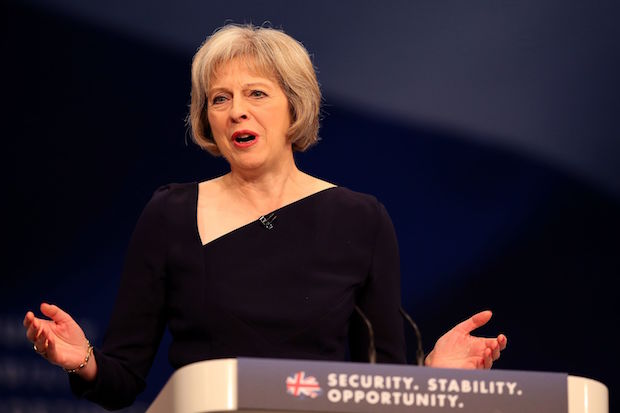While getting the Tory leadership contest out of the way quickly was good for the country following the EU referendum, it did mean that Britain gained a new Prime Minister without much idea of what she believed or wanted to do with her time in office. Theresa May did set out some principles for her government when she stood on the steps of Downing Street on her first day in the job, and in her autumn conference speech, but how she plans to help the ‘just managing’ and how much she really intends to do by way of domestic reform when Brexit is such a big distraction – and potentially a convenient excuse.
But as I say in the magazine this week, the Tory leader is keen that Brexit isn’t the only thing by which her premiership is judged. She has chosen to make domestic reform the theme of her new year launch, writing an article for the Telegraph on the ‘shared society’, which is her own version of David Cameron’s ‘Big Society’, which was in turn his own version of Margaret Thatcher’s oft-misquoted ‘no such thing as society’. What the ‘shared society’ means, other than another Gordon Brown-esque message about being quite different to one’s predecessor, is as follows, according to her article at least:
– Overcoming intergenerational and economic divisions in this country.
– Focusing on the responsibilities that everyone in society has towards everyone else.
– Respecting family, community, citizenship and strong institutions.
– A commitment to fairness.
May says ‘this must be the cause that animates us’. But how, precisely, is that cause different to that of her predecessor, or indeed the cause of her opponents? The list that the Prime Minister offers as a definition of the ‘shared society’ sounds very much like ‘the society in which we all share a love of motherhood and apple pie’. Few across the political spectrum from May’s drier Tory colleagues all the way to Jeremy Corbyn and his comrades would disagree with any of the principles on that list.
May says that the government will ‘move beyond the narrow focus on social justice – where we help the very poorest – and social mobility – where we help the brightest among the poor’ and instead move to ‘a more wide-ranging process of social reform’. Now this is an interesting shift, even if it isn’t clear yet in policy terms what differences we will see.
Beyond the design of individual policies, it will be interesting to see how ambitious May intends to be when it comes to some of the services she names as being ripe for reform. Does she agree, for instance, that the only way to ensure equality in treatment for mental health conditions is to ensure that the treatment of those conditions is properly funded? Governments regularly announce more support for mental health, but that increased support can so often boil down to a couple of hundred million pounds here or there, rather than a comprehensive rethink of funding for these services.
May’s allies argue that she has a track record of being really ambitious on mental health in particular. Her disgust with the practice of putting mentally ill people in police cells (which I revealed back in 2014) has led to a dramatic fall in the number of times cells were used in England and Wales, from 8,667 in 2011/12 to 1,764 in 2015/16, with a 73.3 per cent reduction in the number of children and young people taken to police custody.
So perhaps it is safe to trust that May will do what she says she wants to do. The problem is at the moment that she still isn’t telling us in much detail what that is.







Comments